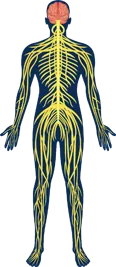- Home
- Browse by Disease
- PANDAS
PANDAS
- Other Names:
paediatric autoimmune disorders associated with streptococcus infections; paediatric autoimmune neuropsychiatric disorders associated with streptococcus infections; pandas - pediatric autoimmune neuropsychiatric disorder associated with streptococcal infection; pediatric autoimmune disorders associated with streptococcus infections; pediatric autoimmune neuropsychiatric disorder associated with streptococcal infection; pediatric autoimmune neuropsychiatric disorders associated with streptococcus infectionspaediatric autoimmune disorders associated with streptococcus infections; paediatric autoimmune neuropsychiatric disorders associated with streptococcus infections; pandas - pediatric autoimmune neuropsychiatric disorder associated with streptococcal infection; pediatric autoimmune disorders associated with streptococcus infections; pediatric autoimmune neuropsychiatric disorder associated with streptococcal infection; pediatric autoimmune neuropsychiatric disorders associated with streptococcus infections
Read More
Read Less








